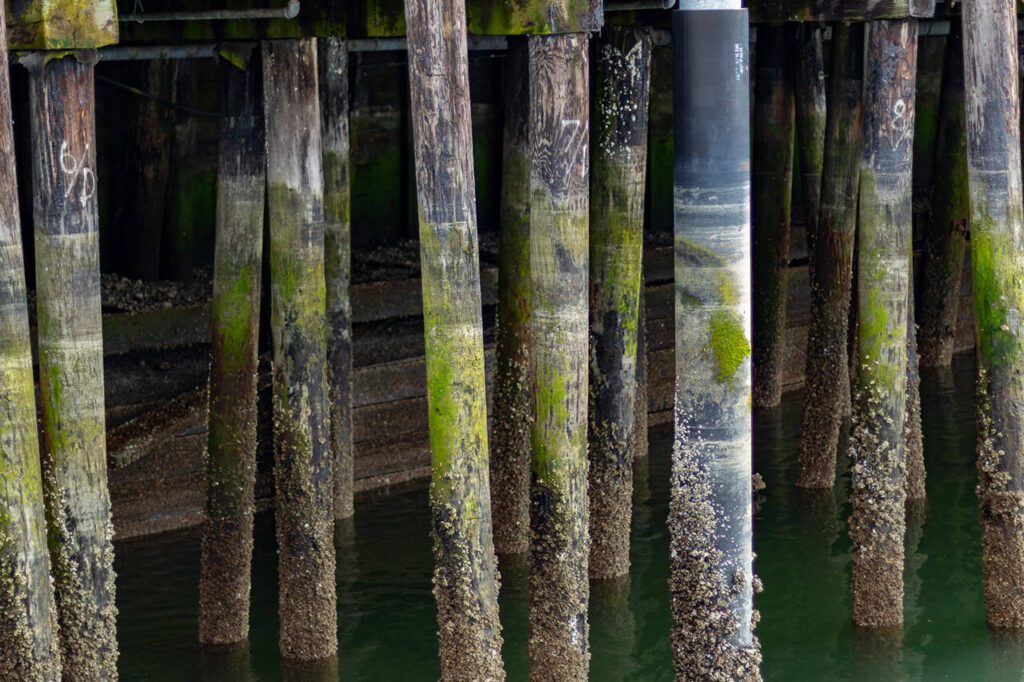EVERETT — Port of Everett officials say an aging, 165-foot-long bulkhead near Grand Avenue Park Bridge needs to be replaced or a stretch of soundbound lanes of West Marine View Drive could eventually end up covered in water.
The port is attempting to solicit bids for the project again after the original bids in January exceeded the port’s $4.4 million budget for the project by around 30%.
Port CEO Lisa Lefeber is hoping that a change in bid rules, reducing the number of diverse subcontractors a contractor must hire, will encourage more bidders to compete for the project, lowering the price.
The port expects to solicit new bids by early May to build a new steel bulkhead that helps preserve the 165-foot section of the road just south the Grand Avenue Park Bridge.
Only two companies bid on the project originally in January, at $5.7 million and $5.9 million respectively.
Lefeber said the bulkhead is at the end of its lifespan. Similar to a retaining wall, a bulkhead stabilizes soil, prevents erosion along shorelines and keeps the water away.
“It was build in the 1940s, and it is failing,” she said of the bulkhead.
Port officials insist there’s no imminent threat to the public but did not provide an estimate of how long the bulkhead will last.
But there is a new worry.
Lefeber worries that President Donald Trump’s tariffs on foreign steel could lead to American steel companies raising their prices — in effect, driving up the cost of the bulkhead project.
The president imposed a 25% tariff on all steel and aluminium from any country on March 12.
The port must use American steel to replace the bulkhead because it is a requirement of a $2.2 million federal highway grant that will help defray part of the cost of the project.
“There may be an inherent increase in domestic steel because you have a captive audience,” she said.
While its widely expected that Trump’s tariffs will increase construction costs on projects using foreign metals in the state of Washington and nationwide, the impact it will have on American steel costs is yet to be tested.
If bids are substantially lower this time, replacement of the bulkhead could begin in the second half of 2025, port officials said. The project is supposed to be finished by the spring of 2026.
The project must get underway in the next few months because there is a September 2025 deadline for the port to submit bills to the federal government to capture the $2.2 million federal grant, said Brandon Whitaker, the port project engineer for the bulkhead replacement.
He said if bids come in within budget this time, the port will be “off to the races” in terms of making sure construction gets started and reimbursements are submitted to the federal government.
The bulkhead project would also include demolishing a 12,000-square-foot wharf — home of the Music at the Marina summer concert series — and replacing it with a larger 15,000-square-foot space.
Whitaker said the expanded wharf will also be beautified with shrubbery and play elements, such as boxes that can be climbed, adding a “whimsical” element.
Lefeber said American steel company cost increases could also add to the cost of other planned port projects, including the 10-acre Millwright District, where an office building, housing units and retail stores are scheduled to rise.
Port officials believe the high bids in January were due to federal rules that required the chosen contractor on the road project to hire at least 21 percent of its subcontractors from the socially or economically disadvantaged.
Lefeber said many of those subcontractors are already working on other Washington construction projects. She said the port believes it had only two bids because some contractors couldn’t hire all the required subcontractors.
Washington state Transportation officials, who are coordinating the $2.2 million grant from the federal government, have agreed to lower the required number of socially or economically disadvantaged subcontractors from 21% to 12%.
Lefeber said lowering the requirement will hopefully increase the number of bids, creating a more competitive atmosphere.
While the Trump administration has attacked diversity programs and eliminated many of them, the federal Department of Transportation contracting rules aimed at helping minorities and women receive contracts have not been eliminated.
Randy Diamond: 425-339-3097; randy.diamond@heraldnet.com.
Talk to us
> Give us your news tips.
> Send us a letter to the editor.
> More Herald contact information.































